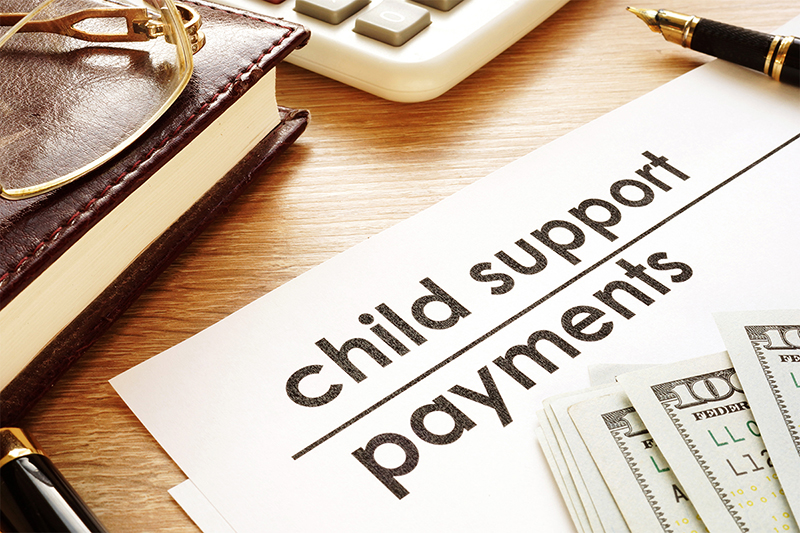Wage Garnishment in Saginaw, Michigan
There is nothing more frustrating than finding your paycheck is far less than you expected. That’s exactly what happens to people affected by wage garnishment. In Saginaw, Michigan, wage garnishment is regulated by state laws which determine the maximum amount that can be deducted from a paycheck to satisfy a legal debt. Employers are required to comply with these laws and withhold a portion of an employee’s wages if a valid court order or writ of garnishment is presented.
To get this writ of garnishment in Saginaw, a creditor must first file a lawsuit against the debtor and obtain a judgment from the court. Then the writ of garnishment is served to the employer. The employer is obligated to withhold a portion of the employee’s wages and send it directly to the creditor to satisfy the debt.
Certain types of income are exempt from garnishment in Saginaw. These include federal benefits like Social Security, Supplemental Security Income, and Veterans’ benefits. If there is a question, it’s best to consult with an attorney for guidance regarding a specific situation.
In Saginaw, the maximum amount that can be garnished from an individual’s wages for a consumer debt is 25% of disposable income or the amount that exceeds 30 times the federal minimum wage, whichever is less. [1]

Wage garnishment can lead to reduced income, making it challenging to meet basic living expenses and financial obligations. It may also negatively impact credit ratings and make it more difficult to secure future credit or loans. Exploring alternative solutions, such as debt negotiation or bankruptcy, can help individuals navigate through the financial challenges posed by wage garnishment.
Reasons for Wage Garnishment in Saginaw, Michigan
Wage garnishment is a legal process that allows creditors to collect a portion of a debtor’s wages to satisfy unpaid debts. In Saginaw, Michigan, there are several reasons for wage garnishment.
Unpaid Child Support
Wage garnishment is a legal process utilized by courts to collect unpaid child support from parents who are delinquent in meeting their financial obligations towards their children.
When an individual fails to make timely child support payments, the custodial parent or the state can seek a court order to employ wage garnishment as a means to collect the overdue amount. This process ensures that child support payments are prioritized and consistently received, providing support to the custodial parent and the children involved.
Wage garnishment due to unpaid child support serves as a powerful enforcement tool that holds delinquent parents accountable for their financial responsibilities.
Often more effective than other collection methods, wage garnishment eliminates the necessity for the custodial parent to continually chase the non-paying parent for the money owed. The process is streamlined and automatic, providing a reliable means for child support payment collection and offering peace of mind to custodial parents who rely on these funds to support their children’s well-being.

Student Loans in Default
When borrowers fail to make payments on their student loans for an extended period of time, the lender or the government can seek a court order to implement wage garnishment. This legal process allows a portion of the borrower’s income to be deducted directly from their paycheck before they receive it, making it easier for the lender to recover the outstanding debt.
Wage garnishment can have significant implications for borrowers with defaulted student loans. Not only can it take a toll on their monthly income, but it also serves as a viable option for lenders to ensure repayment is made. The implementation of wage garnishment eliminates the need for lenders to chase borrowers for payments and provides a systematic approach to collecting outstanding debt.
Unpaid Taxes
When taxpayers do not pay their taxes in a timely manner or fail to establish a repayment plan, the government can seek a court order to initiate wage garnishment. This process allows a portion of the taxpayer’s income to be withheld directly from their paycheck, providing a consistent and automatic means of collecting the outstanding tax debt.
The implementation of wage garnishment due to unpaid taxes serves as a strong deterrent for individuals who attempt to evade their tax responsibilities. By deducting a portion of their income, the government ensures that taxpayers fulfill their obligations and contribute their fair share toward public services and infrastructure.
Wage garnishment is an effective method as it not only ensures regular payment towards the outstanding tax debt but also eliminates the need for continuous efforts by the government to collect the owed funds.
Outstanding Court-Ordered Judgments
When a court issues a judgment against an individual, typically due to a legal dispute or unpaid debts, the winning party may request wage garnishment to ensure the repayment of the owed amount. This legal process allows a portion of the debtor’s income to be deducted directly from their paycheck, providing a means to satisfy the outstanding judgment.
Wage garnishment due to outstanding court-ordered allows the winning party to collect the owed amount without relying on the debtor to voluntarily make payments. This method of enforcement is advantageous as it provides a consistent and automatic way to recoup the funds owed, eliminating the need for the winning party to continuously pursue the debtor for payment.

How Bankruptcy Stops Wage Garnishment in Saginaw
In Saginaw, Michigan, when filing for either Chapter 7 or Chapter 13 bankruptcy, any ongoing wage garnishment (with the exception of child support, alimony, and a few other exceptions) must immediately cease. This relief is key for debtors, as it allows debtors to regain financial stability and ensure that their basic needs are met, without the added pressure of significant portions of their wages being taken before they even receive them.
For Chapter 7 bankruptcy, which involves the liquidation of assets to pay off debts, the stay on wage garnishment lasts until the bankruptcy case is closed or dismissed, or until the creditor obtains a court order lifting the stay. Given that most Chapter 7 cases are resolved within a few months, this provides a relatively quick resolution for debtors.
Chapter 13 bankruptcy, which involves a debt repayment plan over three to five years, offers a longer respite from wage garnishment. As long as the debtor continues to make payments according to the court-approved repayment plan, wage garnishments other than those for child support or alimony will remain halted throughout the duration of the Chapter 13 case.
Contact Frego & Associates and they will assist you with your bankruptcy filing today.
FAQs
After a creditor obtains a court judgment against you, they can request a writ for garnishment, which, if granted by the court, allows them to start garnishing your wages. The writ must be served to your employer, who then has specific obligations, including notifying you and remitting part of your earnings to satisfy the debt. [2]
You have the right to object to the wage garnishment within 14 days of receiving the notice. Grounds for objection could include improper issuance of the writ, exemptions to the garnished funds, bankruptcy filings, or that the debt has already been paid. You’ll need to file an objection with the court that issued the garnishment. [2]
Yes, you can stop wage garnishment by settling the debt, either by paying it in full or negotiating a settlement with the creditor. Filing for an exemption based on financial hardship or other valid reasons can also be a way to stop or reduce the garnishment. Filing an objection to the garnishment can also provide relief if there are valid reasons the garnishment should not proceed. [3]
Sources:
[1] Fact Sheet #30: The Federal Wage Garnishment Law, Consumer Credit Protection Act’s Title III (CCPA) | U.S. Department of Labor. (n.d.). Www.dol.gov. https://www.dol.gov/agencies/whd/fact-sheets/30-cppa
[2] Michigan Wage Garnishment Laws. (n.d.). Www.nolo.com. Retrieved April 24, 2024, from https://www.nolo.com/legal-encyclopedia/michigan-wage-garnishment-law.html
[3] Black, M. (2023, November 3). Can Bankruptcy Stop Wage Garnishment? Bankrate. https://www.bankrate.com/personal-finance/debt/file-bankruptcy-myself-stop-garnishment/




